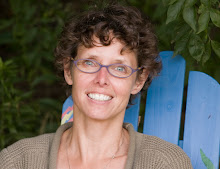Creating Opportunities for New Stories
Two nights ago my three children (and my son-in-law) went to the symphony by themselves. The idea filled me with joy--I loved the fact that my daugther and her husband wanted to take her two younger brothers (ages 17 and 11) with them to hear a famous trumpet player perform. I experienced such a sense of comfort and warmth as I thought of them all sitting there together at the theatre...and realised that this was the first time they had done something like this without me. I wasn't there to tell Cameron, the youngest, to whisper more quietly or Christopher, the oldest, not to pick on his brother. They were on their own, having a special night that had nothing to do with me. As I reflected on the sense of happiness that brought me, I realized why I found such comfort in it: When I stepped out of the role of "family organizer," it created an opportunity for them to honoring their own unique connections to each other. This night they could tell their own stories in a new way, to connect to each other in peer relationships that didn't rely on the hub of Mom in order to bring it all together. As I thought about the families who lose their storytellers and then are stricken suddenly silent by her loss, I found hope in this simple gathering of my children.
Losing the Storyteller
Last week I had coffee with a fellow chaplain and he related a story of attending a family just after a death. He spoke of the frozen silence of the husband and his sons, as they sat, numb and disconnected, in the waiting area outside the hospital room where their beloved one just died. The chaplain and I spoke about the importance of the storyteller--the one who holds, carries, massages, and lifts up the family stories. In my experience, this is often a role the woman comes by naturally, through her sensitivity to relationships, her awareness of meaning, her valuing of the family bond. My heart ached for this family of now only men, men who had relied on this woman as their storyteller, the weaver and keeper of their many meanings, the nurturer of their hope. How, over the coming months, will they learn to become the authors of their own stories? Who will step in as the family storykeeper, willing to learn the subtle and sometimes difficult ways to listen, receive, gather, and share? It may not come naturally. And there is grief work to be done first. But stories contain healing and unlock the secret of our interconnectedness. This is a path I think chaplains and counselors can point to--and in some blessed situations walk along--as natural healing unfolds.
Something to Give
I've been thinking a lot this week about the very human need to have something to give others--a talent, a thought, a hope, a story. Here's a quote from a book I'm reading in my
Spirituality & Addictions class that really crystallizes this point for me:
Heard...If they only understood how important it is that we be heard! I can take being in a nursing home. It's really all right, with a positive attitude. My daughter has her hands full, three kids and a job. She visits regularly. I understand.
But most people here...they just want to tell their story. That's what they have to give, don't you see? And it's a precious thing to them. It's their life they want to give. You'd think people would understand what it means to us...to give our lives in a story.
So we listen to each other. Most of what goes on here is people listening to each other's stories. People who work here consider that to be...filling time. If only they knew. If they'd just take a minute to listen!"
Excerpt from
The Spirituality of Imperfection: Storytelling and the Search for Meaning, by Kurtz and Ketcham.

 RSS feed
RSS feed

